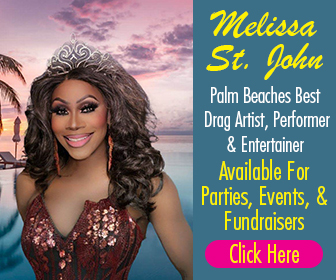
6 Queer Poets: For National Poetry Month, OutSFL Profiles These Local Bards
Since 1996, April has marked National Poetry Month, an initiative launched by the Academy of American Poets. For this year’s Poetry Month, we’d like to introduce you to six queer South Florida poets.&...
Latest

DeSantis Has No Respect for the First Amendment | Opinion
Gov. Ron DeSantis is continuing his assault on the First Amendment by signing into law SB 184 that creates a buffer zone around first responders – supposedly to keep harassers away.
...

'Summer Rental' - Romance, Humor, and Lots of Thrills
Rektok Ross has an undying love of '90s horror and slasher movies, so that is one of the reasons why she wrote "Summer Rental."
...
Follow Us

Mich. Democrats Spar Over LGBTQ-inclusive Hate Crimes Law
Michigan could soon become the latest state to pass an LGBTQ-inclusive hate crime law, but the state’s Democratic lawmakers disagree on just what kind of law they should pass.
...

Senate Committee: Republican Attorneys General Abused Power Demanding Trans Medical Records
In a 10-page report released on April 16 by staff for the Democratic majority of the U.S. Senate Finance Committee, the Republican attorneys general of Tennessee, Missouri, Indiana, and Texas are accu...
































